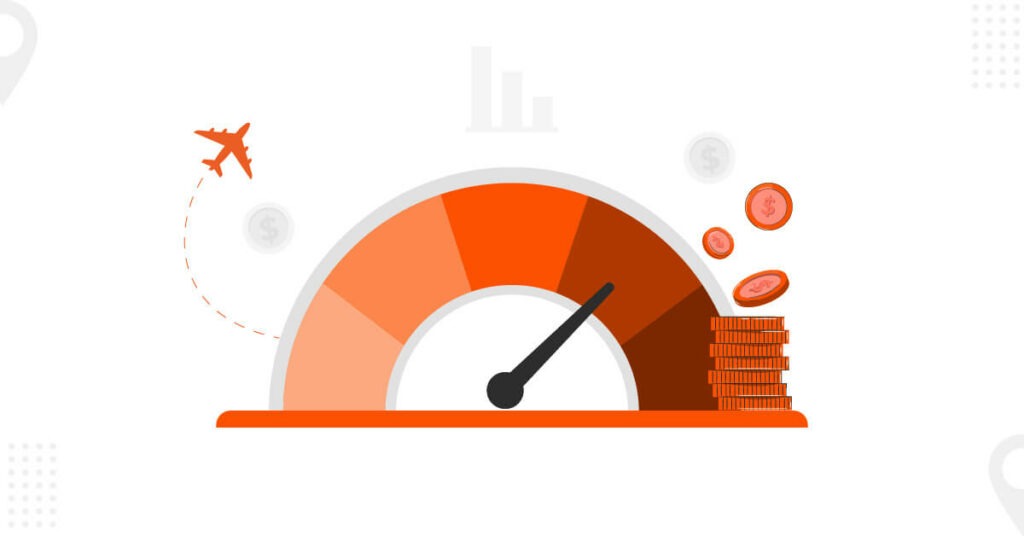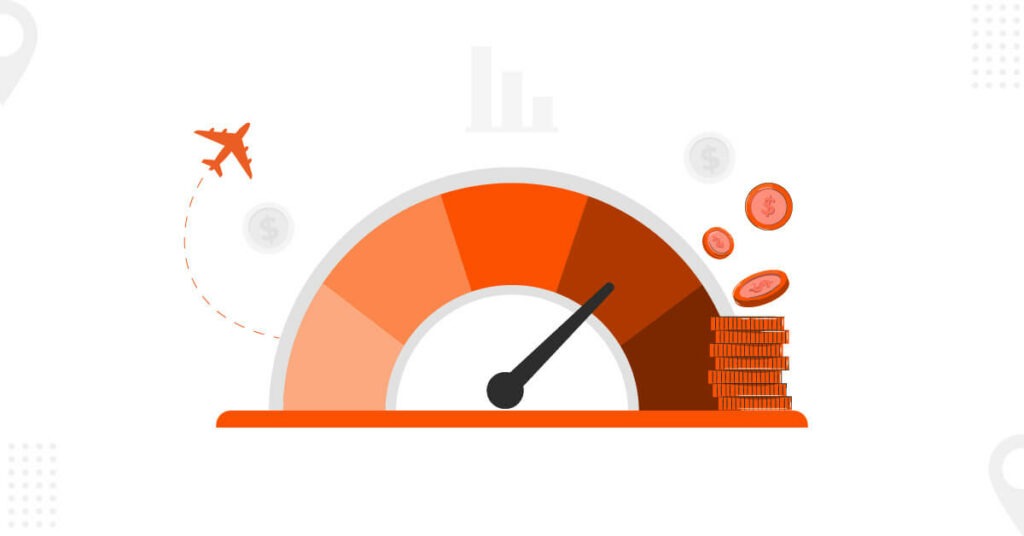
As businesses increasingly rely on travel for various purposes, optimizing travel costs has become a critical focus for many organizations. Moreover, travel expenses can quickly add up, and inefficient travel planning or management can result in unnecessary costs that impact the company’s bottom line.
To effectively manage travel costs, organizations need to have access to accurate and relevant data that can help identify areas of improvement and implement cost-saving measures.
In this blog, we will explore 9 reports that can help you in travel cost optimization. You will get insights into how these reports can benefit your organization in managing and reducing travel expenses.
1. Budget vs Actual Expense Report
This report provides insights into how your actual business trip spending compared to what you planned initially. By analyzing the difference between budget and actual spending, you can identify areas of overspending and business travel cost-saving opportunities.
If the spending of employees consistently exceeds the budget, you may have to identify the root cause of it. For example, if employees are consistently overspending on meals, it may be necessary to review your travel meal allowance policy or encourage them to choose more economical dining options.
This report also acts as a basis for your future travel budget so that you can better align it with the actual expenses. This can help you set more realistic budget targets and optimize costs proactively.
2. Fare Comparison Report
Fare comparison reports of airlines and hotels can help managers in travel cost optimization. By consolidating all fares, managers can make data-driven decisions about the best option available.
Another benefit of using fare comparison reports is that it enables you to identify the best deals and discounts. With this report, you can analyze the quoted price of the vendor with the best price available on the GDS.
Moreover, fare comparison reports enable managers to negotiate better prices with vendors by having a clear understanding of the market rates and leveraging it during the deal.
3. Expense Category Report
This report gives you a holistic view of which category the expenses were made in. Some of the categories include flights, hotels, meals, entertainment, and incidental expenses. By analyzing this report, you can identify specific categories in which the employees overspent.
For instance, the report may reveal that transportation, such as flights or rental cars, account for a major portion of your travel expenses. This may prompt you to explore travel cost optimization measures, such as booking flights in advance.
Similarly, the report may highlight stay expenses as a major cost driver. Then you may have to consider strategies to save money on stays. These may include booking in less expensive areas or exploring alternatives like vacation rentals.
By understanding the breakdown of expenses by category, you can allocate resources more effectively.
4. Spend by Department Report
This report helps you identify high-spending departments. It also provides data on expense type, frequency of travel, and average spending per trip. The major advantage of this report is that it promotes accountability among departments.
When departments know that the company monitors their travel expenses, they are more likely to be mindful of their spending. This can lead to an increase in the cost-conscious behavior of employees and adherence to expense policies. Ultimately this helps in travel cost optimization.
5. Last-Minute Bookings Report
Last-minute flight bookings often cost more. According to a study, if you book a flight 0-6 days in advance, you will pay an average of $220 more. Last-minute booking report helps in travel cost optimization by helping you identify the employees that often book tickets at the last minute.
You can also gain insights into the reasons behind last-minute bookings. These may include urgent business needs, poor trip planning, or lack of adherence to booking policies. After evaluation, you can implement corrective measures such as educating employees regarding the policies to reduce the number of such bookings.
6. Cancellations and Reschedules Report
Business travelers often have hectic schedules that are prone to changes, leading to frequent changes in itineraries. However, these changes can sometimes result in major costs, particularly when they occur close to the departure time.
This report provides insights into the number of cancellations and reschedules made by employees and allows for identifying the genuineness of the reasons behind these changes. It helps organizations evaluate whether the reasons provided by employees for changes were genuine or not.
However, if there are consistently high rebookings, it may be better to opt for flexible tickets. This can help in travel cost optimization by avoiding unnecessary costs associated with flight changes.
7. Travel ROI Report
This report includes various data and metrics related to travel expenses and outcomes. It is essential for providing insights into the overall effectiveness of money spent.
For instance, by analyzing the ROI of different types of trips in terms of deals, partnerships, or revenue, managers can evaluate whether the resources spent on those trips were justified.
If certain types of trips consistently yield a low ROI, you may have to reallocate travel expenses towards potential high ROI trips to optimize travel costs.
8. Vendor Performance Report
A vendor performance report may include metrics that help rank the vendors based on their pricing, services, customer satisfaction, etc. This way, managers can identify vendors that meet or exceed the needs of the organization.
On the other hand, vendors that consistently underperform or fail to meet service expectations can be replaced, leading to cost optimization. Further, managers can use the report data to negotiate and secure better discounts.
9. Unused Flight Tickets Report
Unused flight tickets lead to major losses for the company. Some companies have reported having $1 million in unused flight tickets. This report can provide insights into the number of unused flight tickets, the reasons behind them, and the cost of the tickets.
By analyzing the report, you can identify the tickets that can be recovered or rescheduled to avoid losing the value of the ticket. Further, you can incentivize employees to book only necessary flight tickets to avoid financial burden to the company.
Leverage Reports for Travel Cost Optimization
In conclusion, business travel reports are essential for your business so that you can better use your travel funds. However, you will need the right technology to access such reports.
ITILITE is an advanced corporate travel management solution that can provide you with such travel reports. Moreover, you can customize the reports depending on your needs and requirements. Furthermore, you will get access to a virtual travel consultant that will provide step-by-step guidance to optimize your travel costs.
To know more about the benefits of these reports, book a demo now.












